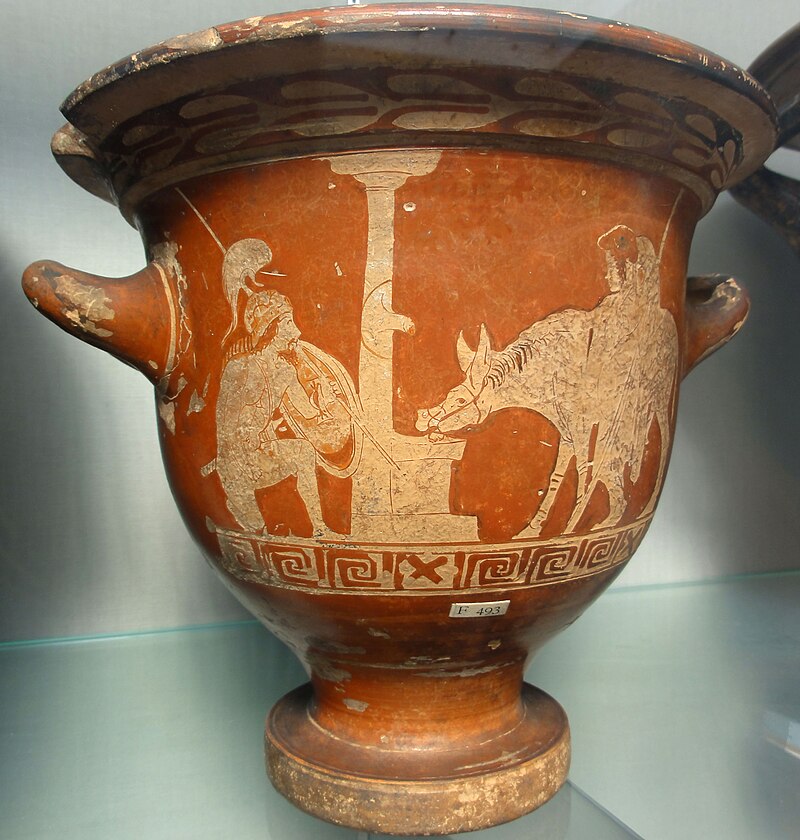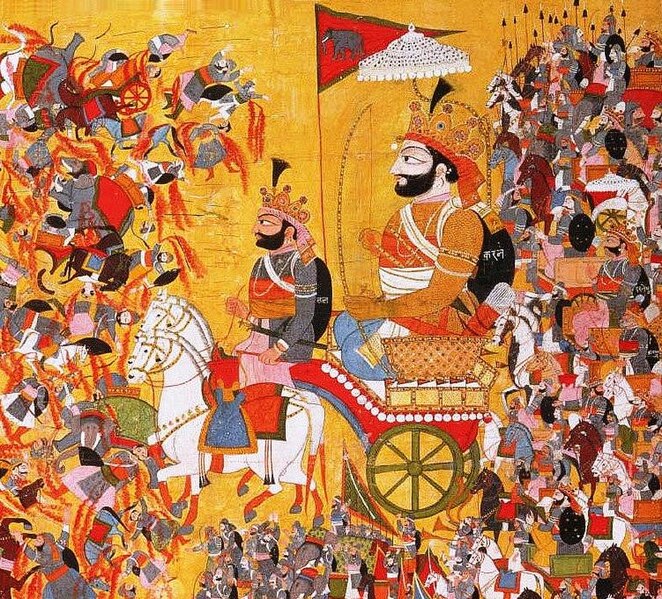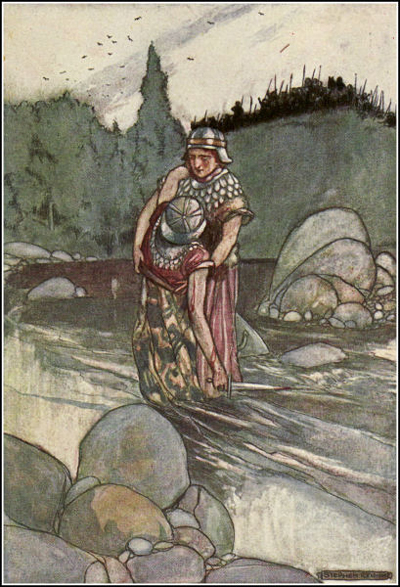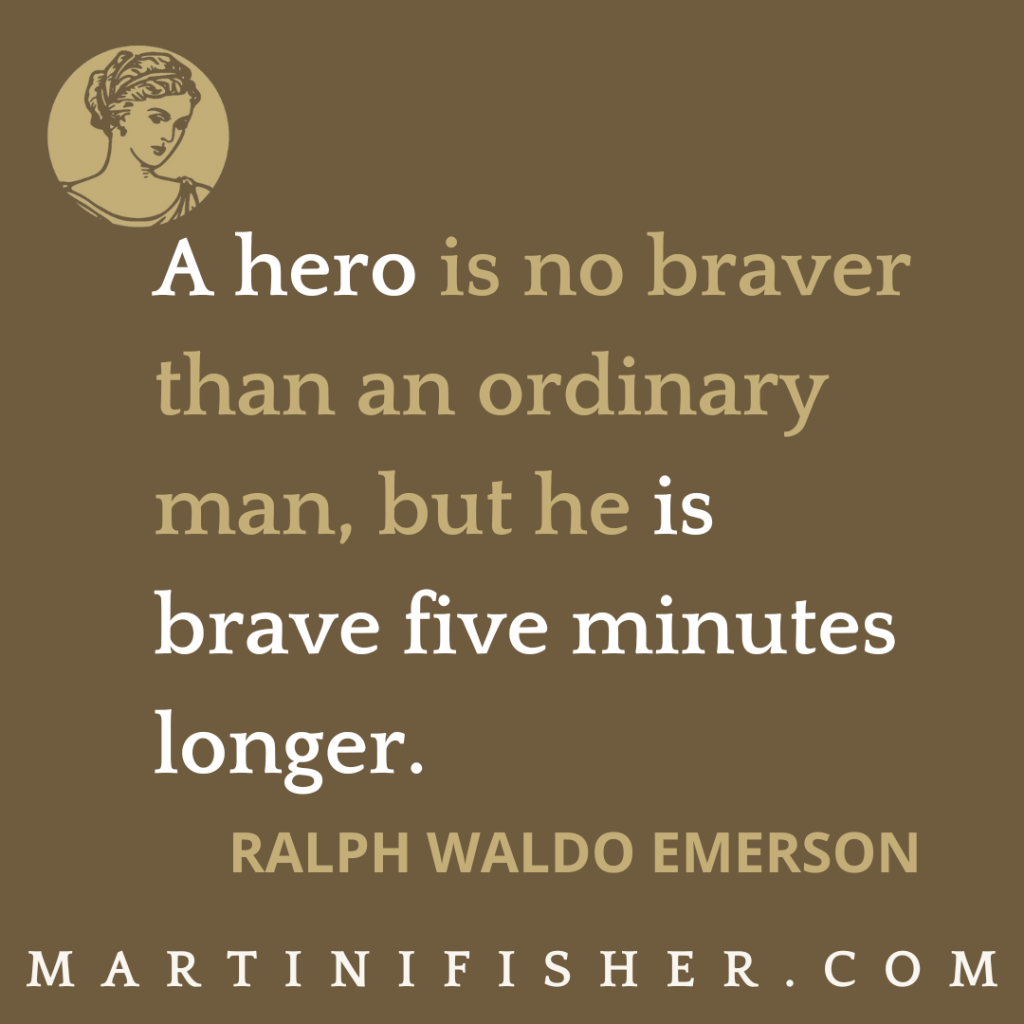It is no longer a secret that there are historical connections between the myths from everywhere in the world, indicating that every culture had strong influences on each other and their legends. A minor example of this can be seen in something as simple as a body armor – Ancient India’s Karna’s kawach (“armour”) has been compared with that of Ancient Greek’s Achilles’ Styx-coated body and with Ancient Irish warrior Ferdiad’s horny skin that could not be pierced.

Back in the eight and the ninth centuries BCE, Greece and India had established universities where a variety of subjects were taught and learned – including literature and rhetoric. Greece and India are also homes to the two greatest surviving epics – the Iliad and the Mahabharata. Another epic, Táin Bó Cúailnge (commonly known as “The Cattle Raid of Cooley”), a legendary tale from early Irish literature, followed some centuries after as it may have been put to writing in the eighth century CE. However, it had a considerable oral history before any of it was committed to writing. A surviving example is the poem Conailla Medb michuru (“Medb enjoined illegal contracts”) by Luccreth moccu Chiara, dated around 600 CE, which tells the story of Fergus’ exile with Ailill and Medb – the poet describes this event as sen-eolas (“old knowledge”). Two seventh-century poems also allude to elements of the story – in Verba Scáthaige (“Words of Scáthach”), Scáthach prophesies Cú Chulainn’s combats, and Ro-mbáe laithi rordu rind (“We had a great day of plying spear-points”) refers to Cú Chulainn’s boyhood incident that formed a section of the epic.
The three tragic heroes: Karna, Achilles and Ferdiad
However, it was the three tragic figures who seemed to highlight the similarities of these epics. In Poetics, Aristotle defines a tragic hero as “a man who is not eminently good and just, yet whose misfortune is brought about not by vice or depravity, but by some error or frailty.” Aristotle further describes a tragic hero as a man who suffers more than what he deserves as, from the beginning of the story, he is doomed without being the one responsible for the flaw he possesses to begin with. The nature of the tragic hero is noble but, at the same time, imperfect – allowing the audience to sympathize with him, perhaps even more so than the main character of the story.

Karna from Mahabharata, Achilles from Iliad and Ferdiad from Táin Bó Cúailnge aptly fit Aristotle’s definition of a tragic hero. By the standards of their individual cultures, the three heroes are somewhat marginalized from society and definitely suffered much more than what they deserved. None of them are the main character of their epics. However, through their individual stories, they also arouse fear and empathy in their audience while they learn from their experiences, making them become most humane characters in their stories.
The three epics were separated by centuries and great distances. However, their story is the same, that is of a great war and the emergence of a new age. The Mahabharata is the story of the great battle that was fought on the field of Kurukshetra between the five sons of King Pandu and their allies on the one side and the hundred sons of King Dhritarashtra with their allies on the other side. The battle involved virtually every tribal king and every powerful city-state in Central and Northern India at the time and was the culmination of a long history of struggle and diplomatic maneuvering. Iliad is set in the Mycenaean Greece in about the twelfth century BCE, portraying the epic battle between the Trojans and the Greeks in which the city of Troy crumbled into dust. Táin Bó Cúailnge, set in the 1st century CE in a pre-Christian heroic age, tells of a war against Ulster by the Connacht queen Medb and her husband Ailill, who intended to steal the stud bull Donn Cuailnge, opposed only by the teenage Ulster hero Cú Chulainn.

Die in battle for everlasting fame
This major issue of warfare provided a focal point of the three stories as it directly related to their beliefs. According to the Hindu scriptures, war is the dharma (virtue) for a kshatriya (warrior). Men who died in warfare were guaranteed a place in heaven. The death of a kshatriya at home is censurable and death on one’s bed is highly sinful. Duryodhana, the antagonist of Mahabharata, went to heaven despite his evil deeds because he died in the war. Duryodhana says, “Fame is all that one should acquire here. That fame can be obtained by battle, and by no other means.” (Mahabharata, 9:5). Achilles shares this sentiment when he said, “My mother Thetis tells me that there are two ways in which I may meet my end. If I stay here and fight, I will not return alive but my name will live for ever: whereas if I go home my name will die, but it will be long ere death shall take me.” (Iliad 9:334) Later, in the Odyssey, Odysseus meets Achilles in the Underworld where we see his post-mortem reflections on the consequences of his choice. In Táin Bó Cúailnge, it was Cú Chulainn who had to make this choice as it was prophesied that his great deeds would give him everlasting fame, but his life would be a short one. War is also referred to as a phase in the coming of age of boys. The princes in Mahabharata were trained together in the arts of war in their youth, and Ferdiad and Cú Chulainn trained together under the renowned warrior woman Scáthach.

Rape or abuse of a woman is the worst insult from an enemy and were the major cause of the three wars. In Mahabharata, Dushasana insulted Draupadi by disrobing her in front of the entire royal court until Krishna intervened – this event triggered the Kurukshetra war. Similarly in Iliad, Chrysies, the daughter of Trojan priest, was captured by the Trojans as war booty. When she cried to Apollo for help, Apollo sent a plague to the Greek army for nine days until the Greeks returned Chrysies to the Trojans. The rise of the young hero Cú Chulainn is explained by the curse that causes the temporary inability of the Ulster men to fight. The men of Ulster were disabled by an apparent illness. A separate tale explains this as the curse of the goddess Macha, who imposed it after being forced by the king of Ulster to race against a chariot while heavily pregnant. The dignity of a woman, mortal or divine, was upheld by the three traditions as her biggest asset and the insult to a woman signifies the inability of the men of her family to protect their kinswoman.
Mahabharata describes Karna as the king of Anga (present day Bhagalpur and Munger). He was also the only warrior in that era who conquered the entire world when he successfully conducted Digvijaya Yatra – a campaign in which he conquered all kings in every direction of the world. By this major conquest, Karna was instrumental in establishing Duryodhana as the emperor of the world.
Gifts of vulnerability for the tragic heroes
There are many similarities between Karna and Achilles, himself the king of the Myrmidons. Achilles’ mother was Nymph Thetis and his father was a mortal king, Peleus. Karna also has a divine lineage – his mother was the then unmarried princess Kunti who was impregnated by the sun god Surya. Both Achilles and Karna were abandoned by their parents. After Achilles was born, Thetis was dipping him in the River Styx when she was interrupted by Achilles’ father Peleus. Infuriated, Thetis left them both. In Karna’s case, his mother Kunti was unmarried when she was playfully invoking the sun god Surya through a mantra (spell) given to her by the sage Durvasa. After Surya gave her a son, realized what mistake she had committed. Under the fear of society’s judgment, Kunti abandoned the child by placing him a basket and floating him in a river.

None of our tragic heroes had any personal intention to fight the wars. The Trojan war was fought because of Paris’ abduction of Helen which prompted Helen’s husband Menelaus to declare war against Troy. Although all the Greeks were expected to participate in the war, Achilles declared that he would neither take part in the war and nor lead any troop. He entered the battlefield only after the death of his friend Patroclus who was killed by Trojan Prince Hector. Karna’s motivation was similar as the Kurushetra war was fought by Draupadi’s five husbands, the Pandavas, as a revenge against Draupadi’s public humiliation by the Kauravas. Karna had also promised that he would not enter the war as the position of leading the troops was denied to him and given to Bhisma. Karna swore that he would not enter the battlefield until he was given the same respect as a warrior and given to lead the troop or after Bhisma’s death. Ferdiad refused his call to fight the war as he did not wish to fight his “brother” Cú Chulainn. He only agreed to fight Cú chulainn after Findabair made him drunk and Medb variously bribed, shamed and goaded him to do so.
As Thetis wanted to make Achilles immortal she dipped him in River Styx. Karna, on the other hand, was born with Kavacha (armor) and Kundala (earing) which made him immortal. Ferdiad was given a horny skin which no weapon could pierce by his teacher, the renowned warrior woman Scáthach. Although these gifts should have saved the heroes’ lives, Achilles, Karna and Ferdiad were all defeated and killed during their wars. Thetis forgot to dip Achilles’ heel in the River Styx, making his heel the weakest part in his body. Achilles was later killed by Paris who shot his heel with an arrow. Karna, who was unconquerable with his kavacha and kundala was tricked by the god Indra, father of his enemy Arjuna, who disguised himself as an old Brahmin ask him for his shields. Karna, being a mahadani (someone known for his great donations) donated them. When Karna’s chariot wheel get stuck in the ground in the war, Arjuna attacked him from behind at the suggestion of Krishna. Arjuna then decapitated Karna without knowing that Karna was his half-brother.

Scáthach gave her gifts to both Ferdiad and Cú Chulainn, who trained together under her tuition and had considered each other as brothers. She gave Ferdiad the horn skin which he would wear as a shield so no weapon could hurt him, and she gave Cú chulainn the Gáe Bulg, a barbed spear which Scáthach has taught only Cú chulainn to use. When the two best friends had no other choice but to fight each other, Cú chulainn called to his charioteer, Laeg, for the Gáe Bulg. Cú chulainn then threw a light spear at Ferdiad’s chest, causing him to raise his shield. He then picked up the Gáe Bulg between his toes and thrusts it through Ferdiad’s anus upon which the barbs spread throughout his body and killed him. After he killed his best friend, Cú Chulainn mourned him,
“Ah, Ferdiad, betrayed to death.
Our last meeting, oh, how sad!
Thou to die I to remain.
Ever sad our long farewell!
When we over yonder dwelt
With our Scáthach, fast, true
This we thought till end of time,
That our friendship ne’er would end!



